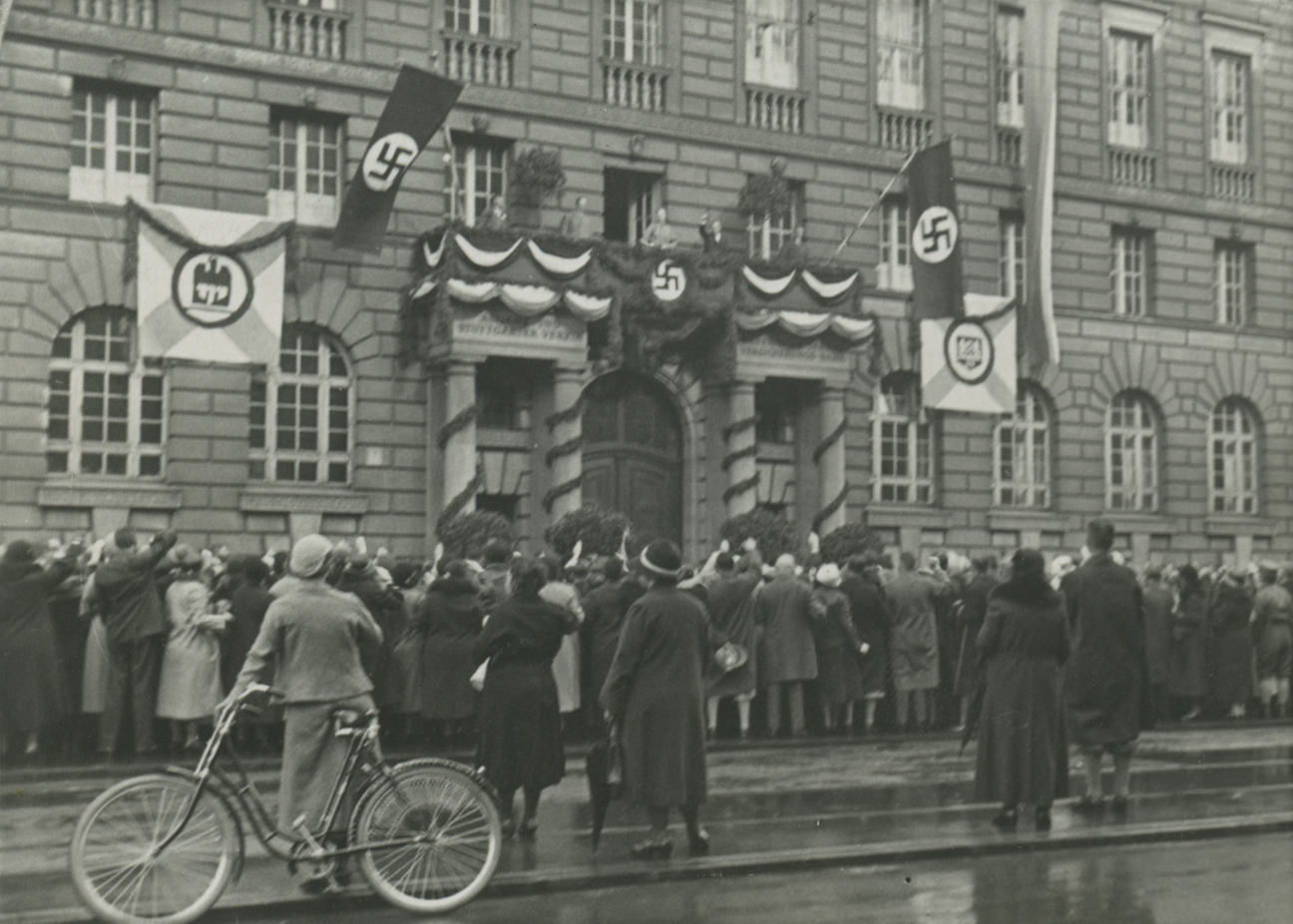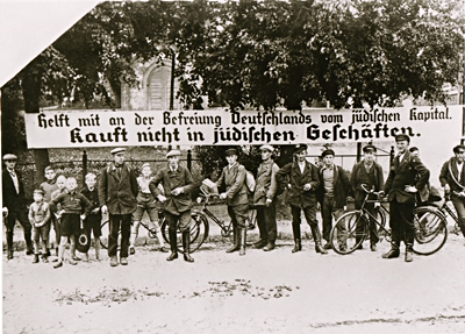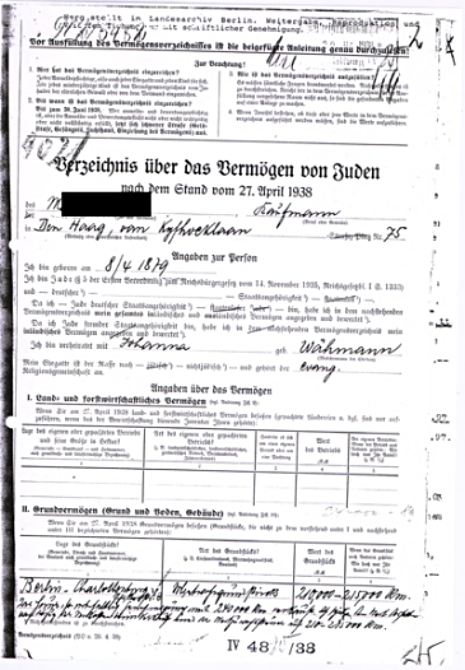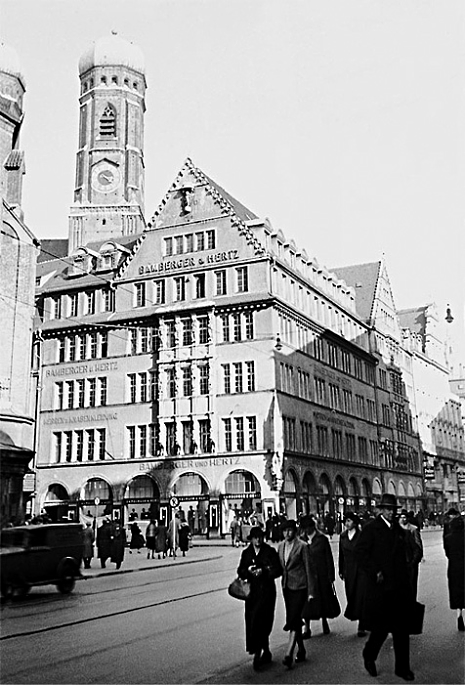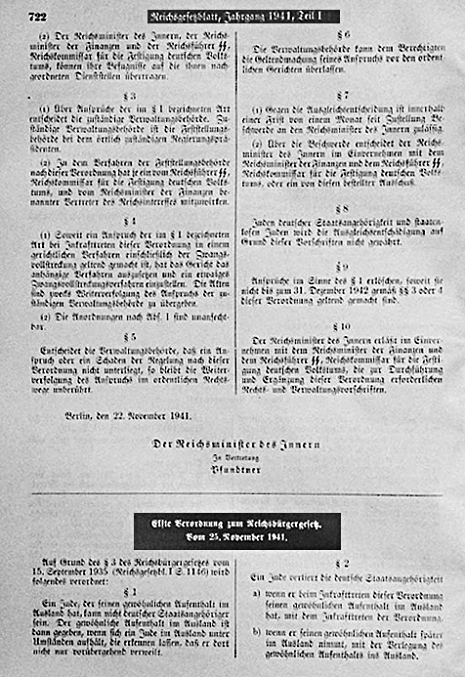Racist and nationalistic anti-Semitism was an essential component of National Socialist ideology. It became one of the guiding principles of German politics.
The objective of this political system was to expel the Jewish population from German society. Before the Nazis began to systematically murder European Jewry in the Second World War, they had destroyed the economic basis of Jewish people's livelihood through arbitrary actions and ever more radical and discriminatory legislation.
They started with a boycott of Jewish businesses, medical practices, and attorneys' offices on April 1, 1933. Throughout the 1930s, the authorities resorted to increasingly brutal measures - Jewish employees were dismissed from the civil service, they were stripped of their civic rights, Jewish businesses suffered as a result of peremptory boycotts, and the media mounted anti-Semitic hate campaigns.
The objective of this political system was to expel the Jewish population from German society. Before the Nazis began to systematically murder European Jewry in the Second World War, they had destroyed the economic basis of Jewish people's livelihood through arbitrary actions and ever more radical and discriminatory legislation.
They started with a boycott of Jewish businesses, medical practices, and attorneys' offices on April 1, 1933. Throughout the 1930s, the authorities resorted to increasingly brutal measures - Jewish employees were dismissed from the civil service, they were stripped of their civic rights, Jewish businesses suffered as a result of peremptory boycotts, and the media mounted anti-Semitic hate campaigns.
